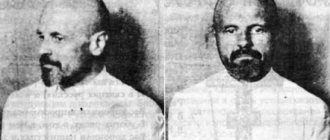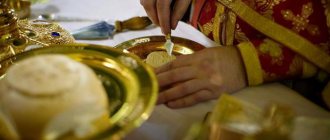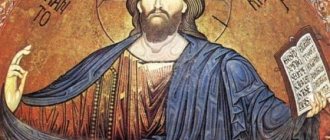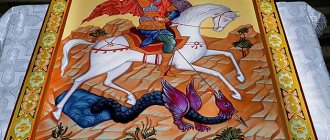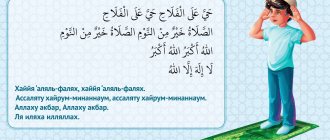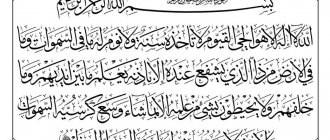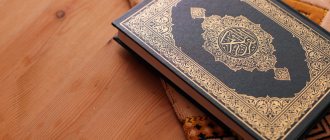- What is Witr prayer?
- Commitment time
- Sunnah or Wajib
- How it is done
- Which suras to read
- Dua Qunut Text of Qunut
- Obligation of Dua Qunoot
Many hadiths indicate how important it is to perform this prayer. The name Witr prayer in Arabic means “odd”, that is, this prayer includes an odd number of rakats: from one to eleven, but it is most common when it is performed in three rakats - it is an additional prayer in Islam, not included in the obligatory (fard), but relating to important prayers that Prophet Muhammad ﷺ never abandoned. Read after the 5th obligatory Isha prayer before the morning Fajr prayer.
Time to perform Witr prayer
The time when it should be performed, according to the sunnah, is the moment after the Isha prayer (the last fifth of the obligatory prayer) and continues until dawn.
If a Muslim believer wakes up at night in order to perform Tahajjud, then after it it is advisable to perform Witr prayer. If there is no confidence that a Muslim will be able to get up at night to do this, then it is better to do it before going to bed. Abu Busra quotes the words of the Prophet Muhammad ﷺ that those believers who are confident that they can wake up in the last third of the night should perform Witr prayer at the end of the night, since this is the best time, because “the prayer at the end of the night has witnesses of angels.” For those who are not sure that they will wake up, it is better to do it at the very beginning of the night.
What to do if you don’t know or forgot to read al-Qunut
Whoever reads this prayer poorly in Arabic or has not learned it can say instead (until he learns or improves this prayer) three times “أَلَّهُمَّ اغْفِرْ لِي” “Allohumma-g’firli” or “رَبَّنا آتِنَ ا فِي الدُّنْيَا
"Robbana aatina fid- dunya hyasanatan va fil-ahiroti khasanatan, va kyina 'azaban-nar." Those. You can make any other forms of praise and dua to the Almighty.
If the person praying forgot to read the kunut and remembered it only after bowing from the waist, then there is no need to go back to read it. At the end of the prayer, one must perform sajda sakha before salam.
Sunnah or Wajib?
The very performance of Witr prayer is a sunnah legalized in Sharia, that is, the sunnah of muakkada. Imam Abu Hanifa was of the opinion that this type of prayer is wajib.
Like the five obligatory prayers, Witr prayer is not obligatory, but has a higher degree of importance than Nafil prayer and Sunnah prayer, so abandoning this prayer is not advisable.
According to Sheikhul Islam ibn Taymiyyah, Witr , which is sunnah, cannot be skipped , and if someone constantly neglects to perform Witr prayer, then his testimony will not be taken into account. He called Witr prayer the best prayer of all desirable prayers, more urgent than the ratibat prayer, voluntarily performed during lunch, night and evening prayers, and Witr prayer is the most strongly recommended along with ratibat before morning prayer.
Hadiths about Witr prayer
I will repeat some of the statements of the Prophet Muhammad (peace and blessings of Allah be upon him) about the prayer of Witr: “[Prayer] Witr is the duty of every Muslim. Whoever wants to read five [rakyats], let him read. Whoever has three [rakyaats], let him read. Whoever is one [rakyaat], then let him read” [21].
*
“[Prayer] Witr is a duty. He who does not do it is not one of us [22]” [23]. The above hadiths are the fundamental arguments of Imam Abu Hanifa in favor of the necessity (wujub) of Witr prayer [24]. The vast majority of scholars (including the imams of the Hanafi madhhab, Muhammad al-Shaybani [25] and Abu Yusuf [26]) argue that Witr is one of the most important sunnahs, but not wajib [27]. One of the proofs of this are the words of Imam 'Ali: “Witr in terms of obligatoryness is not equivalent to the five obligatory prayers, but Witr is an institution of the Prophet” [28]. Failure to perform Witr, in the opinion of most theologians, will not be a sin, but it will be a loss of that eternally valuable thing that contains every example from the prophetic Tradition - the Sunnah of the last messenger of the Lord Muhammad (may the Almighty bless him and greet him). This is especially true for the Witr prayer, which he performed daily. The Prophet said: “Verily, the Lord helps you with prayer, which is more valuable to you than the most valuable cattle.” The Companions asked: “What kind of prayer is this?” The Prophet replied: “[Prayer] Witr, the time of which is between the night prayer and the appearance of dawn” [29]. Scientists, based on the analysis of the hadith on the semantic meaning of the word “helps” (“emadda”), came to the conclusion that Witr is one of the main prayers that make up for inaccuracies or errors that may have been made when performing the five obligatory fard prayers.
How to perform Witr prayer?
The Witr prayer consists of a certain number of prayers of two rak'ahs, and ends with an odd prayer, which consists of 1 rak'ah.
Witr prayer, in which eleven rak'ahs are performed, is considered the most valuable, and limiting oneself to only one rak'ah is undesirable. If more than three rak'ahs are performed together with one salam, then one tashahhud is read in the last rak'ah, or two tashahhud are read in the last two rak'ahs, but more than two cannot be read. The most preferable would be to perform Witr prayer two rak'ahs, then say salam, and finally read one rak'ah.
It is not advisable to perform Witr prayer of three rak'ahs and one salam, since by doing this we liken it to the evening prayer, and the Prophet Muhammad ﷺ forbade us from it.
There is an option when it consists of one prayer, consisting of an even number of rak'ahs, which are performed continuously, there can be from two to ten, and then ends with a prayer in which there is one rak'ah. There is no mandatory requirement that you follow one of these methods; you can alternate the methods of performing this prayer. The Prophet Muhammad ﷺ, as follows from some hadiths, performed this prayer in one way and another.
Witr prayer of three rak'ahs can be performed in two different ways:
- In the first option, you should perform 2 rak'ahs, as is done in a regular two-rak'ah prayer, and then perform one rak'ah, reading the dua "Qunut" before making a bow.
- In the second option, three rak'ahs are performed in the same way as in the Maghrib prayer, but there is a difference. If in the Maghrib prayer, when they bow to the ground after performing the second rak'ah , the praying people read Tashahhud , then when performing the Witr prayer, the prayer is not read , but one should immediately stand for the third rak'ah.
This video provides a hadith about the dua read in the Witr prayer:
According to some scholars, the first method of performing Witr prayer is more preferable. It can be considered as part of the night prayer, which is sunnah, and it is recommended to complete it as a separate one rak'ah. It is allowed to read it both after Isha prayer immediately and before going to bed, and you can also read it during the last third of the night, and special grace is contained at this time. If a Muslim has fears that during the last third of the night he may not wake up in order to perform prayer, then it is better for him to perform it before going to bed.
Text and transcription in Arabic
Dua Qunoot in Arabic:
اللَّهُمَّ إِنَّا نَسْتَعِينُكَ وَنَسْتَغْفِرُكَ وَ نَسْتَهْدِكَ وَنُؤْمِنُ بِكَ وَ نَتُوبُ إِلَيْكَ وَنَتَوَكَّلُ عَلَيْكَ وَنُثْ نِى عَلَيْكَ الْخَيْرَ كُلَّهُ وَنَشْكُرُكَ وَلاَ نَكْفُرُكَ وَنَخ ْلَعُ وَنَتْرُكُ مَنْ يَفْجُرُكَ اللَّهُمَّ إِيَّاكَ نَعْبُدُ وَلَ كَ نُصَلِّى وَنَسْجُدُ وَإِلَيْكَ نَسْعَى وَنَحْفِدُ نَرْجُو رَحْم All rights reserved.
Dua Qunut in Russian transcription for reading:
“Allaah-umma, inna nasta i'nukya u nstagfiruk' u nastakhdiikya u nu'minu bikya u natuubu il'yayk, u natavakkyalu 'alaik, u nusnia 'ala-ykya-l-haira kul-lyahuu our-kuruk, u laya nak-furuk u nakhlya'u u na'truku mayya-fjuruk. Allah-umma, iya-kya na'budu, u la-kya n'solli have nasjud, u ilyay-kya nas'a nakhfid, narju rahmatakya, u nakhsha 'azaba-kya, inna 'azaba-kyal jidda bi-l -kuffri mul'hik."
The words of the dua should be pronounced in a low voice.
Dua qunoot
Dua “Qunut” is a prayer that is read in the third rak’ah: either before the bow, or after in the Witr prayer.
According to one opinion, the Qunut dua should be read daily throughout the year, as required by the Hanafi madhhab; according to the Shafi'i madhhab, it is read during the second half of the holy month of Ramadan.
According to some scholars, it is not necessary to read this dua every time you perform Witr prayer, since there is no indication that the Prophet Muhammad ﷺ read this dua every time.
Qunut text
Dua “Qunut” contains the following text: “O Allah, guide me to the straight path, like those whom You guide, and deliver me (from all evil) from among those whom You have delivered, and protect me from among those whom You have taken care of me, and bless me in what You have given, and protect me from what You have predetermined, for You decide, but decisions are not made about You, and, truly, the one whom You supported will not be humiliated, as he does not know glory to the one with whom You began to be at enmity! Blessed are You, our Lord and the Exalted!” Abu Dawud 1425, an-Nasai 3/248.
Dua qunoot in Arabic read in the last rak'ah of the Witr prayer
Transcription: Allahumma-khdini fi man hadait, wa'afini fiman 'afayt, uatahuallani fiman tavallayta, uabarikli fima a'tait, uakini sharra ma kadait, fainnaka takdy walya yukda 'alaik, innahu, la yazillu man walayit, walya ya'izzu man 'adait, tabarakta Rabbana uata'alayt.
The Prophet ﷺ reliably established only this single prayer of kunut.
In this audio you can listen to the dua qunut read collectively during the month of Ramadan.
After saying this prayer, you can turn to the Almighty with a prayer for the Messenger of Allah ﷺ, the companions did this, and among them was Ubay ibn Ka'b and Abu Halima Mu'az al-Ansari - these companions did this during Ramadan in Witr.
It is also reported that during Witr, 'Umar ibn al-Khattab said the following in dua kunut: “O Allah, we worship You. We pray to You and make prostrations before You, we rush to You and hasten, we ask for Your mercy and we fear Your punishment, truly, Your punishment will befall the infidels! O Allah, verily, we ask You for help, and we ask You for forgiveness, and we thank You for your goodness, and we are not disbelievers in You, and we believe in You, and we submit to You and renounce those who do not believe in You.” al-Baykhakiy 2/211.
Transcription: Allahumma, iyaka na'bud, ualyaka nusalli ua nasjud, ua ileika nas'a uanakhfid, narju rahmatak, uanakhsha 'azabak, inna 'azabaka bil-kafirin mulhak. Allahumma, inna nasta'inuka, ua nastagfiruk, uanusni 'alaikya-lhaira, walya nakfuruk, ua nu'minu bika, uanahda'u lak, uanahlya'u man yakfuruk.
The fact that the companions did this indicates that during qunut one can turn to Allah other than the one that the Prophet Muhammad ﷺ taught his grandson.
If the Muslim performing the prayer does not know the Qunut dua, he can instead recite the text: “Rabbanaa aatina fid-dunyaya hasanatan, wa fil-aakhyrati hasanatan wa kynaa azaaban-naar,” which is translated as a request to the Lord to give the believer good things in this earthly life. life and the future, as well as protect from the torment of Hell.
Obligation of Dua Qunoot
In connection with Witr prayer, questions are often asked regarding the performance of the Qunut prayer. It is said in the last rakah of Witr prayer and, according to some scholars, this prayer is obligatory, and if you leave it, then you must atone for it afterwards by performing sajdah sahua, that is, expiatory prostrations to the ground. You can read this prayer both before bowing and after it, but reading it before bowing is preferable, since this is exactly what the Prophet Muhammad ﷺ did, as evidenced by Sheikh al-Albani and Hafiz al-Iraqi.
What is Qunut and its meaning
Dua is a controversial issue for many devout Muslims. According to different branches of Islam, Qunut is pronounced in a special way. The prayer is read during the obligatory daily prayers in difficult, troubled times:
- morning double dua (fajr);
- midday quadruple (zuhr);
- pre-evening quadruple (asr);
- evening prayer three times a day (Maghrib);
- night quadruple (isha).
Qunut dua َللَّهُمَّ اهْدِنَا translated from Arabic literally means “O Allah Almighty, guide us.” Mahdina should be recited after bowing to the ground. A righteous Muslim bends down, brings his hands to his face, and opens his palms.
In some areas of Islam, dua is read daily only in the morning prayer. Kunut is pronounced when trying to find the Almighty’s approval for upcoming actions. Prayer helps you see a way out of a difficult situation.
In difficult times for the Muslim people, sacred words are included in the daily ritual and are sent to Allah with a request to protect from troubles and find the right solution to problems.
Qunut (Hanafi madhhab) لقنوت (al-knut) is a prayer included in the third raakat of prayer. Witr وتر translated from Arabic means odd, it is optional and refers to desirable prayers. The text is read after the night Isha and includes an odd number of raakats (parts).
The dua is read in the last raakah. Witr and Qunut are done only at the behest of the heart. In the holy month of Ramadan, it is said after Tarawih prayer. Many Islamic scholars, Hanafis, consider witr as obligatory wajab and it is sinful to leave sacred words. In the desired petition, the righteous person asks the Almighty to guide him on the true path, to give him strength and asks for forgiveness for the sins he has committed and repents of his misdeeds.
With the help of Qunut, a person shows devotion and renounces the infidels to Allah. During dua, the person asking worships to the ground, hoping for mercy and fearing the punishment of the Creator.
Is it read by one person praying or by the jamaat?
Witr prayer is performed without a jamaat, that is, individually, and only during the period of Ramadan it is recommended to perform it collectively, that is, a jamaat. In the second half of Ramadan, while standing after making a bow in the last rakah, it is recommended to say the prayer “al-Qunut”.
Of all the sunnah prayers, Witr prayer is the most valuable of those that are performed without jamaat, that is, individually. It is also more valuable than ratibats, which relate to sunnah prayers and are performed together with farz prayers, that is, obligatory.
Number of rak'ahs and form of performing witr
According to Abu Hanifa's madhhab, Witr prayer consists of three rak'ahs. Salam is given once at the end of three rak'ahs as in evening prayer.
The procedure for performing Witr prayer is as follows:
- Namaz must begin with niyyat (intention) - “I intend to perform a virt prayer of three rak'ahs” - saying “Allohu Akbar” and raising hands;
- Next, al-Fatiha and any other surah are read;
- Making a bow from the waist, accompanied by the words “Allohu Akbar”;
- Alignment after bowing from the waist, accompanied by the words “sami'Allohu liman hamidahu, Rabbana va lakal-hamd”;
- Lowering to perform two sujuds (bow to the ground). While descending and rising, we say “Allohu Akbar”;
- After the second sajda we rise to the second rak'ah;
- The second rak'ah is performed in the same sequence;
- After Sujud we read at-tashahhud;
- We rise to perform the third rakat;
- After reading al-Fatiha and the surah, we do not bow down from the waist, but read the prayer al-Qunut (more about it below);
- Then we perform the bow and other actions as in the first two rakats;
- At the end, after bowing to the ground, we read at-tashahhud and salam to the right and left.
The value of Witr prayer
The madhhab of Imam Abu Hanifa indicates that performing this prayer is wajib, that is, necessary, so you should not skip it.
A number of hadiths talk about the value of witr prayer: in the hadith cited by at-Timirzi, which was also cited by Abu-Daud, ibnu Majah and an-Nasai, it is said: “Truly, Allah is witr (that is, One), and He loves wind. O people of the Qur'an, observe Witr."
This prayer has a number of advantages. This is especially indicated by the fact that the Prophet Muhammad ﷺ constantly performed this prayer, even if he was not at home, but on a trip, and this alone already indicates its importance. According to the ruling of Sharia, Witr prayer is Sunnah Muakkadah, that is, strengthened Sunnah.
Rules for reading the sacred text
Dua Qunut Mahdin is not considered obligatory and can be read in any prayer and is not limited in quantity. In the Muslim world, it is believed that Allah hears the righteous only in difficult moments of life and helps those who ask:
- the night of predestination of the Almighty;
- the period of time of the last third of the night. When a Muslim suddenly wakes up in the middle of the night, he needs to start praying, Allah will hear the request and help;
- obligatory daily prayers;
- dua during bad weather. Rain is considered auspicious for seeking protection from Allah and reciting Qunut;
- Suj - worship. If a righteous Muslim dies, Allah will hear all those praying for loved ones and relatives;
- prayer on the holy holiday of Ramadan;
- time of Zikr - making a collective prayer to Allah;
- children asking mercy for their parents and vice versa;
- dua for a person on a journey;
- Qunut is the time of fasting or breaking the fast;
- a problematic situation when a Muslim can only rely on the help of the Almighty;
- after the ritual of ablution before each prayer;
- during the annual Hajj pilgrimage;
- dua in holy places for believers (Mecca).
In the Muslim religion, you cannot perform the ritual during menstruation, in an altered consciousness (alcohol, drugs).
In the Muslim religion, the hukm (location) of the Witr of prayer is located at the level of the sunnah-muakkad. The time for performing the great Qunut dua with the last raakat is determined at night after the last obligatory prayer of Isha before sunrise, respectively, before the morning double Fajr.
According to the Hanafi madhhab, it is believed that if a Muslim misses Witr, he can make up for the deficiency at any time with other obligatory prayers.
According to other religious Islamic schools, there is no need to make up for missing duas. According to the records of hadith scholars, every righteous person should adhere to clear rules for performing the rite of petition of Qunut. The writings of the Prophet Muhammad speak about the importance of correctly fulfilling the sunnahs of the Koran.
The holy hadith says: “Witr is a necessity for every righteous Muslim. The person who considers the recitation of prayer unimportant will be excluded from the mercy of Allah Almighty” (Abu Dawud, al-Hakim, Ahmad). There is much disagreement among Islamic scholars regarding the order of the ritual.
In the Hanafi and Maliki branches of Islam, it is believed that there should be 2 raakat before the dua of Qunut for Witr prayer. First, the obligatory Maghrib prayer, that is, evening prayer, is performed. The peculiarity is that the sacred words are read in three parts and a surah of the Koran is pronounced in each.
Do you need the help of magical powers?
Get an answer to your burning question from a magician and healer. Write about the problem right now, and an expert will suggest a solution online!
Ask a free question View all questions
The Shafi'i and Hanbali madhhabs are characterized by 3 ra'akat; sitting quud in the middle part is not performed. When the Muslim finishes reading the second one, he stands up and continues with the Fatihah surah, which is considered additional in the Koran. Then you need to make takbir and read dua. The Qunut order is typical for Kazakh, Uzbek, Tajik Muslims and Kyrgyz. An-Nasai and Rashid Hakim mention a hadith for proof, it says that the Final Messenger of Allah said prayer words without sitting on the mat in the middle of the second and third rak'ah.
In the theological and legal schools of the Maliki madhhab, the ritual of Witr prayer is conventionally divided into two parts. The first includes the performance of two raakats - greetings and praise to Allah (salaam) are said. Then a break is taken for a minute and the next ritual with Qunut is performed. In confirmation, there is a hadith by Ibn Umar, in which the Prophet Muhammad divided the Witr prayer into two parts: two rakats with a greeting and one with a dua.
A hadith written by Aisha states: “The Prophet Muhammad made three rak'ahs of witr and praised and saluted Allah (salaam) at the end of the prayer." Dua al qunut - praise to the Almighty in the last raakah.
In the Shia madhhabh, a free order of the raakahs of the optional Witr prayer is allowed.
You can say more than 3 parts at a time. There can be 5-7-11, only an odd number of times is allowed. It is possible to do the ritual in 1 part; as an example, the Sunnah of the last Messenger of Allah is given. The hadith of Al-Bukhari and Muslim says that the Prophet Muhammad allows prayer and dua to be performed in one raakat in case of lack of time before the morning and the transition to the mandatory morning double ritual. Imam Abu Hanifa considered witr obligatory (wajib), his students Abu Yusuf, Muhammad al-Shaybani, the founders of three other madhhabs - Imam Malik, al-Shafi and Ahmad considered performing prayer with Qunut desirable (sunnah-muqqada), but not obligatory.
Prayers said after Witr prayer
After Witr, the sunnah is to recite the following dhikr three times:
“سُبْحَانَ الْمَلِكِ الْقُدُّوسِ” - “Subhyanal-Malikil-Quddus.” It is also sunnah to read dua after Witr prayer. From Ali ibn Abu Tolib, may Allah be pleased with him, it was reported that the Messenger of Allah (peace and blessings of Allah be upon him) read the following dua after Witr:
›››› ُقُوبَتِكَ، وَأَعُوذُ بِكَ مِنْكَ لَا أُحْصِي ثَنَاءً عَلَيْكَ أَن ْتَ كَمَا أَثْنَيْتَ عَلَى نَفْسِكَ" - "Allohumma a'uzu biridoka min sakhatyka, wa bimu'afatika min 'ukubatika, wa a'uzu bika minka la akhsy sanaan 'aleika anta kama asnayta 'ala nafsika.' Sahih Muslim, Hadith No. 1090. “O Allah, I seek refuge in Your pleasure from Your wrath, and Your forgiveness from Your punishment, and I seek refuge in You from You; I will not list the praises of You as You have praised yourself.”
